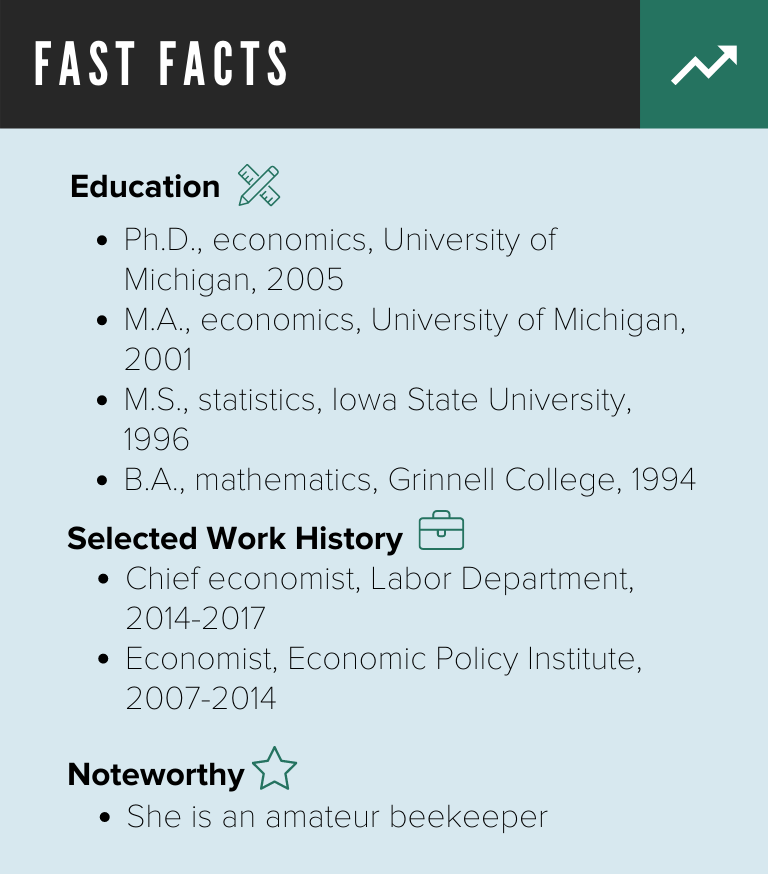Senior Economist and Director of Policy of the Economic Policy Institute
Fast Facts

Data-Driven Economist

LEARN MORE
Vignette, a service through National Journal Research, is an essential tool for government affairs teams that need to understand the people behind the policies.
Click here to request a demo of the Vignette database, or email njvignette@nationaljournal.com to speak to someone about your access.
Heidi Shierholz is not a run-of-the-mill economist. For starters, she began her career not in the dismal science but in mathematics and statistics. Shierholz plied those trades at the Bureau of Labor Statistics and the AFL-CIO, among other places, before going on to earn her master’s and doctorate in economics at the University of Michigan.
Secondly, her research is focused less on evaluating the impacts of policies on GDP or interest rates, and more on their impacts on wages, worker benefits, and equality. Writing on the American Rescue Plan’s passage in March, she wrote, “While the bill is not perfect, it is nevertheless a groundbreaking departure from the profound mistakes of prior downturns, when Congress’s refusal to provide sufficient relief and recovery caused needless suffering for millions, exacerbated racial inequality, and delayed recoveries by years.”
Shierholz became a professor at the University of Toronto toward the tail end of the Bush administration, before plugging into the D.C. think-tank world with EPI in 2007. From there, she authored often-favorable analyses of Obama administration policies and was invited to serve as chief economist in the administration’s Labor Department. After President Trump took office in 2017, Shierholz’s door revolved again back to EPI. She supported many bills now being reintroduced by the Democratic Congress and continues to offer critical academic support to the Biden agenda.
Approach and Motivations
Excerpted from Heidi’s Vignette profile
Data-driven economist motivated to support workers and address inequities; particularly conscious of economics as it relates to race and labor
- Past research with the AFL-CIO and years of academic work on labor economics inform Shierholz’s strong advocacy on behalf of unions, both for their right to organize and for the promotion of their policy objectives
- Evaluates economic policy based on its projected impact on labor standards such as wages, benefits, and safety standards, informing her advocacy efforts; in addressing potential unemployment created by changes to labor standards, Shierholz notes that newly generated economic growth will rectify losses in the long term, while calling for expanded unemployment support in the present
- Economic analysis frequently addresses disparities in race and gender, most recently analyzing the slower jobs recovery for Black Americans; often roots these discussions in systemic racism and says equity needs to be a priority in economic-recovery efforts
- Often measures social pressure on economic issues as related to strike activity, asserting that low wage growth, as seen in general economic trends, is also evidenced by increases in collective action
Not a Vignette subscriber? You can purchase a digital book with in-depth profiles on everyone featured in this special report.
To learn more about Vignette, or see the platform in action, request a demo here.

